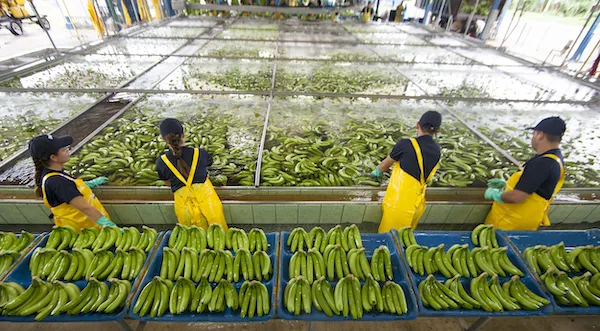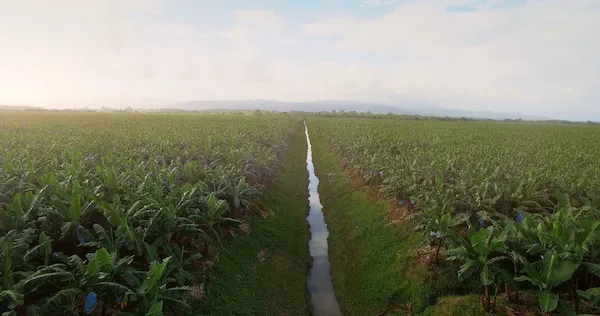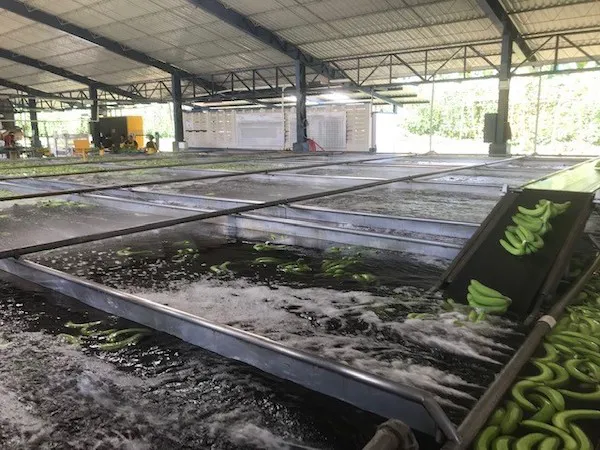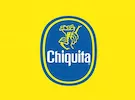Sunday March 22 was World Water Day, and Chiquita announced that the company has committed to water conservation through land gifting and farm rejuvenation programs. Currently, 59% of Chiquita’s farms are rejuvenated, with plans to rejuvenate 76% of farms by 2022.
“The global population is expected to reach 10 billion people in the next 30 years,” explains Jamie Postell, Director of Sales North America for Chiquita. “Chiquita is dedicated to finding solutions that ensure the growing population, as well as the food systems needed to feed it, have safe and sustainable water. Chiquita has identified three key Sustainable Development Goals to minimize its environmental footprint and promote water conservation for generations to come.”

Chiquita’s Sustainability Development Goals include:
- By 2030, improve water quality by reducing pollution, eliminating dumping and minimizing release of hazardous chemicals and materials, halving the proportion of untreated wastewater and substantially increasing recycling and safe reuse globally.
- By 2030, substantially increase water-use efficiency across all sectors and ensure sustainable withdrawals and supply of freshwater to address water scarcity and reduce the number of people lack of water supply.
- By 2020, protect and restore water-related ecosystems, including mountains, forests, wetlands, rivers, aquifers and lakes.
Chiquita meets these goals by reducing its use of “grey” water, a measure of the amount of water needed to remove pollutants introduced in production or processing. Chiquita’s grey water footprint was 75 liters per kg of bananas according to a World Wildlife Fund study in 2012. Since then, the company has taken significant steps to lower its impact by creating its farm rejuvenation program. The program works by redesigning farm layout, maximizing use of fertilizers while minimizing the use of herbicides, and moving fields away from watercourses to reduce the risk of chemical run-off into waterbeds.

In addition to the farm rejuvenation program, Chiquita is strictly following methods of integrated crop management, which are set and monitored by the Rainforest Alliance. Chiquita protects natural watercourses and riverbanks by planting cover crops on all drainage ditches and banning agrochemical weed control. The company also applies agrochemicals that kill banana-loving parasites to the stem of the plant, rather than the soil. To ensure the effectiveness of these programs, independent laboratories sample and analyze the purity of water in streams leaving Chiquita's farms.
Aside from implementing water saving programs in its own farms, Chiquita also aims to improve the environmental conditions within local communities. In 2018, Chiquita helped donate 160 hectares of reforested land from the San San Pond Sak wetland reserve to the people of Panama. With the help of employee volunteers, Chiquita planted thousands of trees to assist reforestation. Chiquita continues to finance the maintenance and protection of the area, which has since become home to several protected species including sea turtles and manatees.

For more information:
Bridget Mackey
Email: bmackey@coynepr.com
www.chiquitabrands.com
